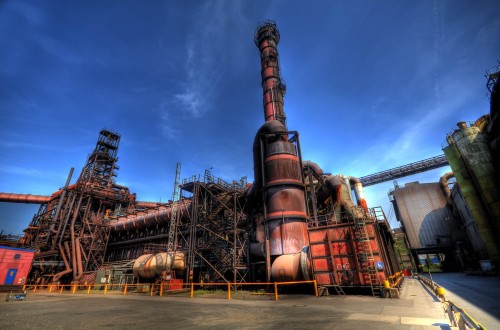
The steel industry accounts for approximately seven per cent of global emissions but demand is forecast to increase: 1.7 billion tonnes of steel were produced in 2018, and this is predicted to rise to 2.6 billion tonnes in 2050.
A critical part of the steelmaking process uses carbon as a blast furnace reductant to separate oxygen from iron-ore. According to ArcelorMittal, significantly reducing the emissions footprint of steel will likely require a fundamental change in the science of steelmaking.
In its first Climate Action report, ArcelorMittal address potential technologies and the policy environment required for the steel industry to succeed in meeting the targets of the Paris Agreement.
Lakshmi Mittal, chairman and CEO, ArcelorMittal, said: “We will need a more supportive policy environment that considers the global nature of steel, the cost implications of significantly changing the way steel is made and the clean energy supply needed to do so. If we can work together to solve the problem, I’m convinced the steel industry will be able to make a significant contribution to reducing carbon emissions globally.”
The company has identified – and is actively testing in Europe - three paths that could deliver a significant reduction in carbon emissions, including so-called clean power steelmaking that would use ‘clean’ power as the energy source for hydrogen-based steelmaking, and longer-term for direct electrolysis steelmaking.
https://www.theengineer.co.uk/arcelormittal-to-use-hydrogen-in-steel-production-process/
Similarly, so-called circular carbon energy sources, such as waste biomass, could eventually displace fossil fuels in steelmaking. Alternatively, fossil fuels could still be used in the steel-making process, but the carbon would then captured and stored or reused rather than emitted into the atmosphere.
ArcelorMittal’s global policy recommendations for low-carbon steel:
Global level playing field is needed to maintain the competitiveness of low-emissions steelmaking and to avoid the risk of carbon leakage, for example, through green border adjustments;
Access to abundant clean energy at affordable prices will be key to be able to scale up low-emissions technologies;
Facilitating necessary clean energy infrastructure will be needed to advance large-scale implementation of low-emissions technologies;
Access to sustainable finance in order to accelerate and roll out technology development;
Accelerate transition to a circular economy by incentivising the use of waste streams as inputs in manufacturing processes.





Project to investigate hybrid approach to titanium manufacturing
What is this a hybrid of? Superplastic forming tends to be performed slowly as otherwise the behaviour is the hot creep that typifies hot...